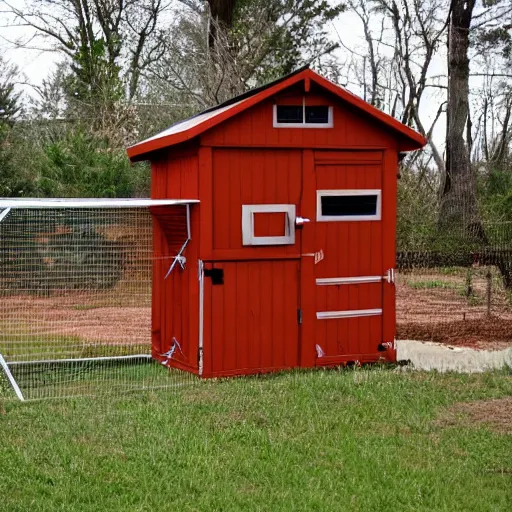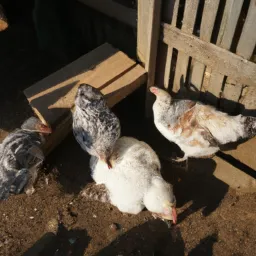Keeping Hens For Eggs – Not The Only Positive Outcome
Keeping hens for your own fresh eggs is gaining popularity in today’s world of growing your own so you know what goes into it and therefore what comes out.
However, having your own fresh eggs is not the only reason for keeping hens.
Hens have their own personality and are in fact a great pet.
Whilst they may not come to you for a pat, they are extremely inquisitive and charming.

You will find yourself watching your hens and enjoying their personalities.
Once your hens start to lay they become a lot more approachable and wishing to be closer to you.
It is great to see the hens do the ‘chicken lay squat’ when you put your hand out.
This is where the hen will squat closer to the ground and hunch their wings.
You might enjoy walking outside during the day and seeing the hens come running towards you.
It is actually quite comical watching them run.
You will have to make sure that doors are closed or you may find a hen coming in to check up on you.
It can be quite a sight to be working at your computer only to be interrupted by a hen walking across the keyboard.
Adds a dimension to the typing!!

Keeping hens can also be extremely beneficial for your garden.
If you are lucky to have space and happy to allow the hens to roam free during the day, then hens certainly love it.
However, hens can manage to spread dirt around. If this is not an outcome you desire then you may have to discourage your hens from you garden beds.
One way of controlling where your hens may roam is by a portable tractor.
This is an enclosure that allows you to move your hens to where you want them to ‘graze and scratch’.
By doing this you can get a great impact from the hens scratching and actually getting the soil worked up or ready for planting.
See also How to Care for a Single Chicken: Tips and Tricks
Imagine how much easier preparing your vegetable patch would be.
When cleaning out your chicken coop add this all to your compost and you will end with some of the best fertilizer.
As you can see that keeping chickens for eggs is not the only positive outcome.
There is nothing better than being able to collect your OWN eggs.
The taste, and texture is so much better – give it a try.

Starting Your Backyard Flock: How Many Chickens Should a Beginner Begin With?
For aspiring backyard chicken enthusiasts, the excitement of starting your own flock can be overwhelming. However, one question that often arises is how many chickens should a beginner start with?
While there is no one-size-fits-all answer, this article aims to guide beginners in making an informed decision by considering various factors that influence flock size.

From available space and time commitment to local regulations and personal goals, we’ll explore the key considerations to help you determine the ideal number of chickens to start your backyard adventure.
1. Assessing Available Space:
Before deciding on the number of chickens, it’s crucial to evaluate the available space in your backyard. Chickens require adequate room to move around, exercise, and forage.

As a general guideline, allow at least 4 square feet of coop space per chicken and 10 square feet of outdoor space per chicken.
Consider the size of your coop, the layout of your garden, and any zoning restrictions in your area to determine the maximum number of chickens your space can comfortably accommodate.
2. Time Commitment:
Another important factor to consider is the time commitment required to care for your flock.
Chickens need daily attention, including feeding, watering, cleaning the coop, and collecting eggs. The more chickens you have, the more time-consuming these tasks can become.
As a beginner, it’s advisable to start with a manageable number of chickens to ensure you can provide them with the care and attention they require without feeling overwhelmed.
3. Local Regulations:
Before bringing chickens into your backyard, familiarize yourself with any local regulations or ordinances that may restrict the number of chickens you can keep.
See also Happy Hens, Healthy Eggs: The Benefits of Raising Contented Chickens
Some areas have specific guidelines regarding flock size, noise regulations, and proximity to neighbors.
Ensure you comply with these rules to avoid any legal issues and maintain good relationships with your community.

4. Personal Goals and Needs:
Consider your personal goals and needs when determining the number of chickens to start with.
Are you primarily interested in having a steady supply of fresh eggs?
Or do you also want to enjoy the benefits of natural pest control and fertilizer for your garden? Assessing your goals can help you decide on the appropriate flock size.
For beginners, starting with a small flock of 3 to 5 chickens is often recommended.
This allows you to gain experience and learn the ropes before potentially expanding your flock in the future.
5. Considering Breeds and Varieties:
Different chicken breeds have varying space requirements, temperaments, and egg-laying capabilities.
Research different breeds and consider their specific needs when deciding on flock size.
Some breeds are more suitable for smaller spaces, while others thrive in larger, free-ranging environments.
By choosing breeds that align with your space and goals, you can optimize your backyard chicken experience.

As a beginner, determining the ideal number of chickens to start with is a crucial step in building a successful backyard flock.
By carefully considering factors such as available space, time commitment, local regulations, personal goals, and breed selection, you can make an informed decision that suits your needs and sets you up for a rewarding and enjoyable chicken-raising experience.
Remember, it’s always better to start small and gradually expand your flock as you gain confidence and experience in keeping chickens.
With the right approach, your backyard can become a thriving haven for happy hens and a source of fresh, homegrown eggs.
